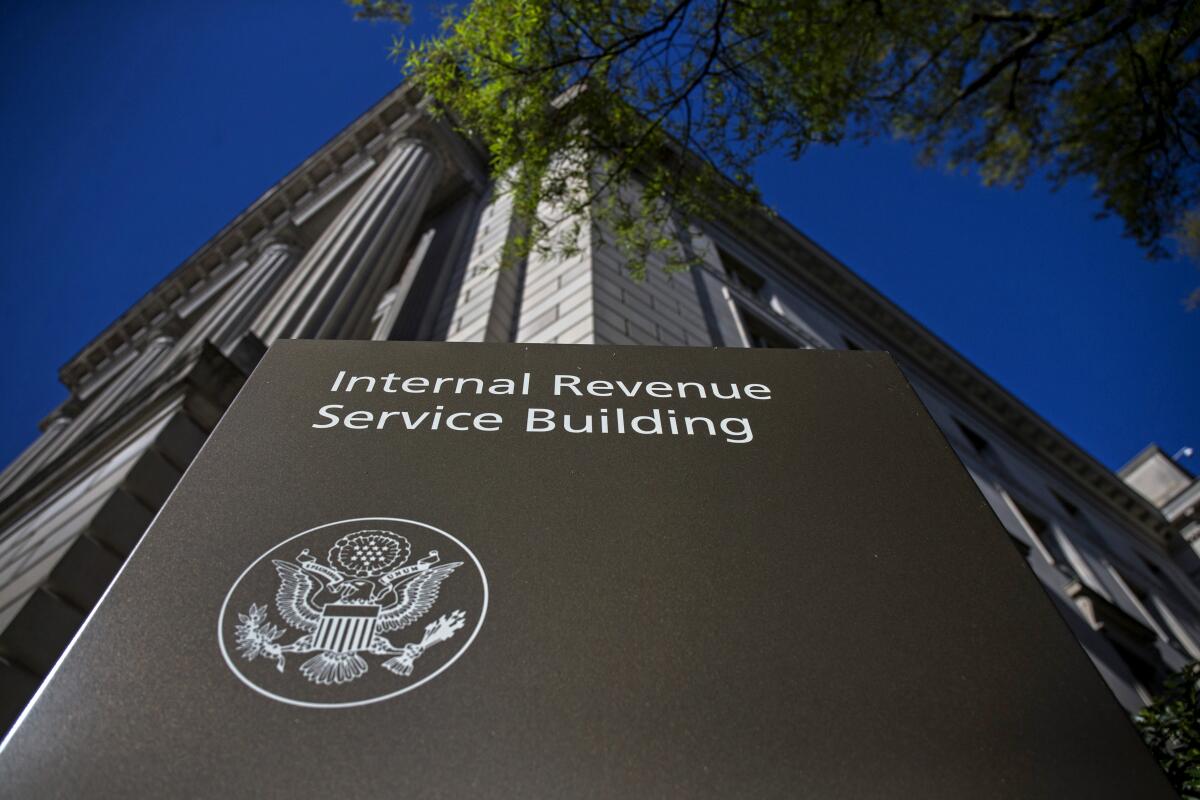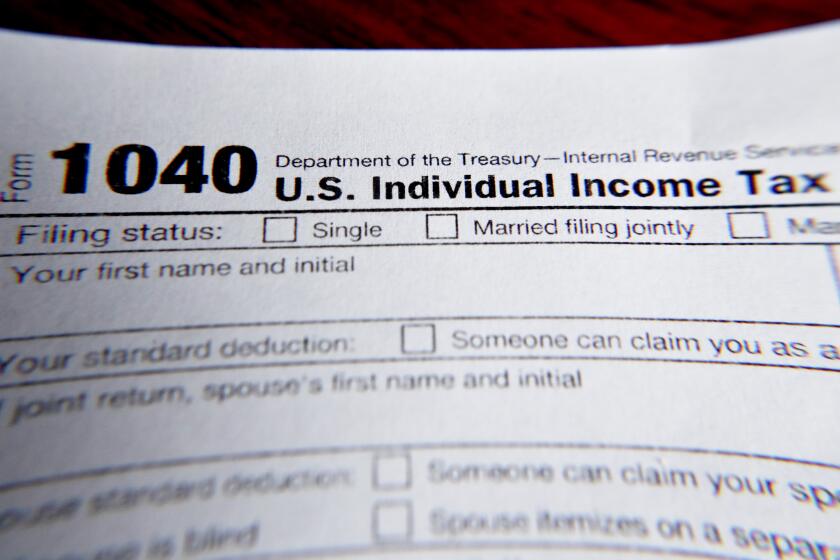Here’s something you don’t often hear from the IRS: Don’t pay your taxes (yet)

- Share via
A ball of confusion — that’s what the IRS is today, at least for many Californians.
The Internal Revenue Service announced in early January that taxpayers in disaster-stricken counties would have more time to file their returns and pay their taxes. Since then, it has amended its stance multiple times, adding more counties and extending the payment deadlines — and then seemingly moving up the deadlines and canceling the relief.
The latest hiccup: Taxpayers who filed their returns early but delayed paying what they owed are getting “notice and demand” letters from the IRS, telling them they face penalties and interest charges if they don’t pay within 21 days. Only if they read all the way through the four-page letter will they find a paragraph at the end telling them to disregard everything that came before it if they live in an area covered by a disaster declaration — which includes 57 of the state’s 58 counties.
Say what?
According to a blog post by the national taxpayer advocate, federal law generally requires the IRS to send you a “notice and demand” letter within 60 days of your income tax being assessed. And the moment the IRS processes your return, your tax is assessed.
That’s why the agency feels compelled to send the letters to people who’ve already filed their returns but have yet to pay what they owe, even though the demand is premature. Making matters worse, it stuck with the usual panic-inducing form letter for the sake of expediency, adding “a short paragraph on page 4 of the notice that essentially says never mind — ignore the 3 pages you just read,” the taxpayer advocate’s blog post said.
Many software options will let you file your taxes and get your tax refund for free. And for most Californians, the tax deadline has been moved to Oct. 16, 2023, to file federal and state.
For Californians in Modoc and Shasta counties, the actual deadline is Aug. 15. For the rest of the state, except for Lassen County, the deadline is Oct. 16. (Lassen was not covered by any disaster declaration.) The deadline applies not just to amounts due for 2022, but also estimated tax payments for the first two to three quarters of 2023.
If you haven’t already marked your calendars, do so now — those are the correct dates. If you have a refund coming, however, you should file your return as soon as you can; otherwise, you’re giving the federal government an interest-free loan.
The IRS put out a statement June 7 saying it “reassures California taxpayers that they continue to have an automatic extension until later this year to file and pay their taxes for those covered by disaster declarations in the state.” Three weeks later, it announced that it would send follow-up letters to taxpayers who received notices in California and seven other disaster-stricken states “to let them know that they have additional time to pay their taxes.”
Those letters state in English and in Spanish: “Since your address of record is located in a federally declared disaster area, the IRS has automatically granted you disaster relief. This gives you an extension of time to file your tax returns as well as make your tax payment listed” on the demand notices. They add, “You do not need to contact us to get this extra time to pay.”
Beyond that, the agency has updated the insert that accompanies the demand notices “to make it clearer that the payment date listed in the letter does not apply to those covered by a disaster declaration, and the disaster dates remain in effect.” The insert (in English and Spanish) includes a QR code that links to the IRS.gov disaster page, on which taxpayers can scroll through nearly 30 statements to find the four that apply to various parts of California.
According to the taxpayer advocate, more than 1 million taxpayers in those states filed returns with an unpaid balance before their extended deadlines. That’s a lot of new IRS pen pals.
For its part, the California Franchise Tax Board said it won’t send statements of tax due “until the tax is due and payable in accordance with the disaster extension due dates.” For more information on California deadlines and eligibility, see the Disaster Relief page on the Franchise Tax Board’s website.
About The Times Utility Journalism Team
This article is from The Times’ Utility Journalism Team. Our mission is to be essential to the lives of Southern Californians by publishing information that solves problems, answers questions and helps with decision making. We serve audiences in and around Los Angeles — including current Times subscribers and diverse communities that haven’t historically had their needs met by our coverage.
How can we be useful to you and your community? Email utility (at) latimes.com or one of our journalists: Jon Healey, Ada Tseng, Jessica Roy and Karen Garcia.
More to Read
Totally Worth It
Be your money's boss! Learn how to make a budget and take control of your finances with this eight-week newsletter course.
You may occasionally receive promotional content from the Los Angeles Times.












